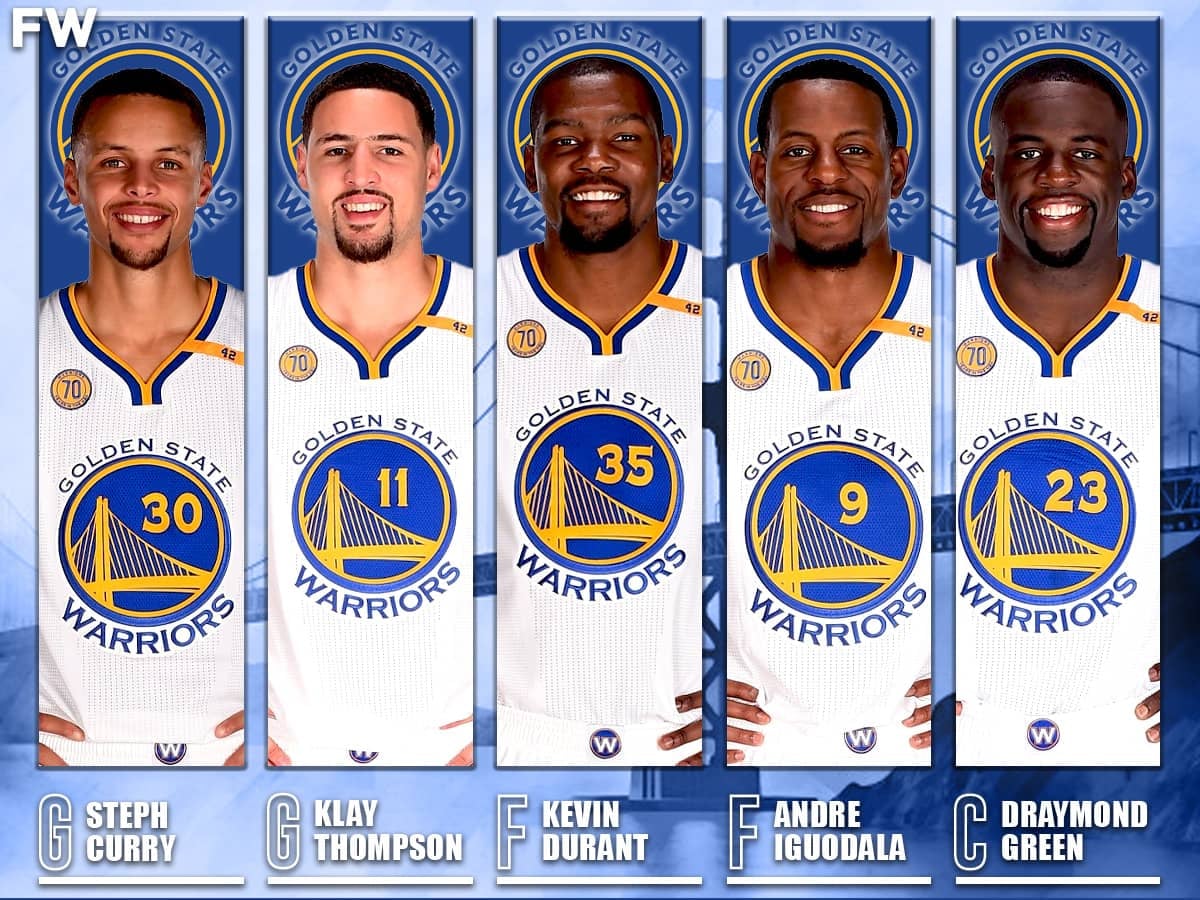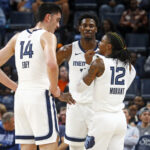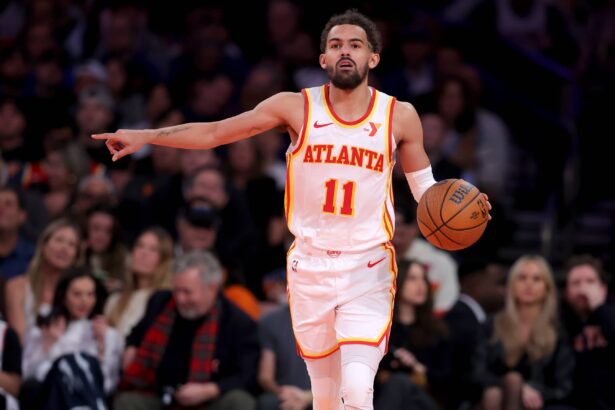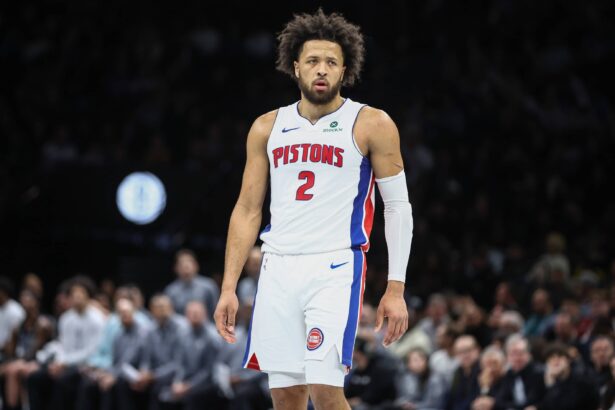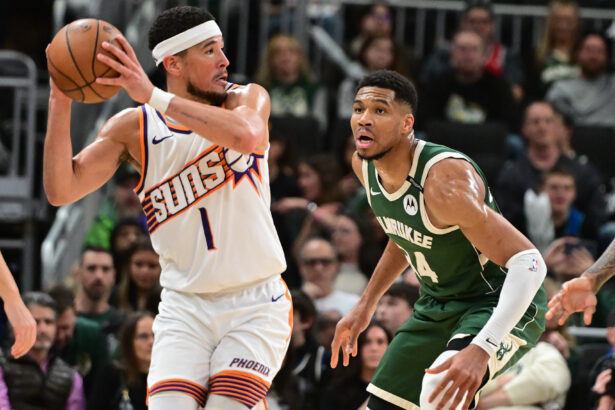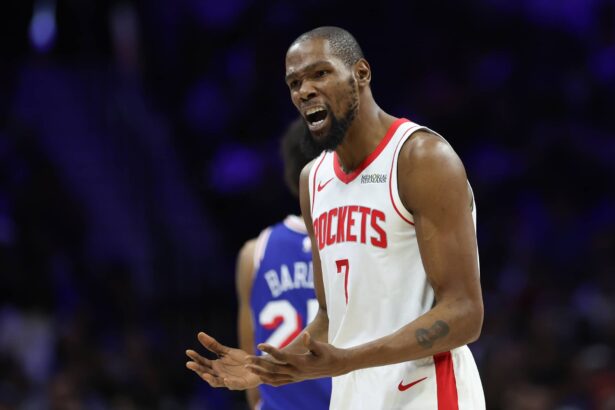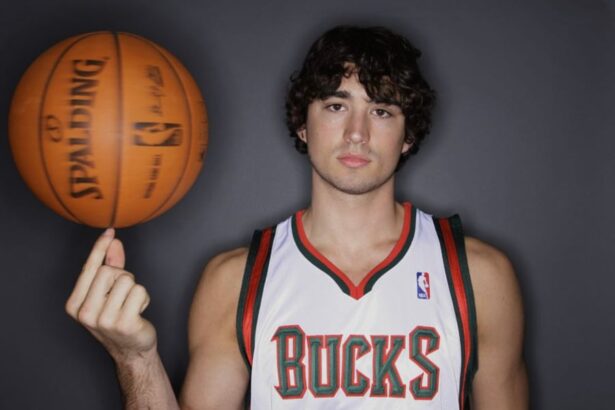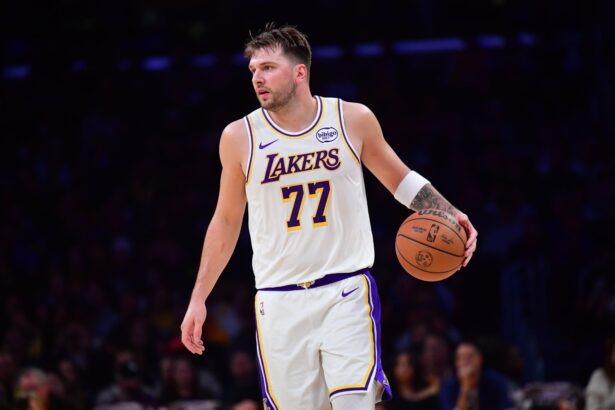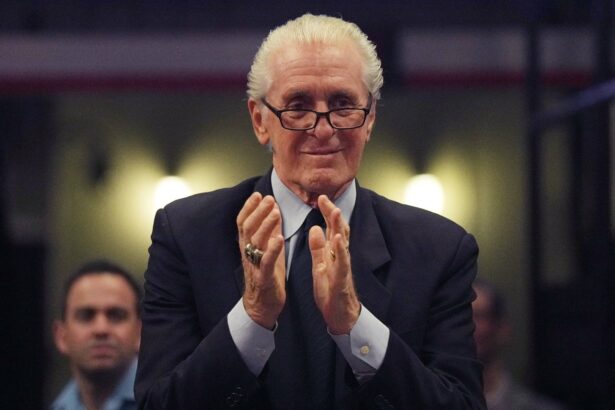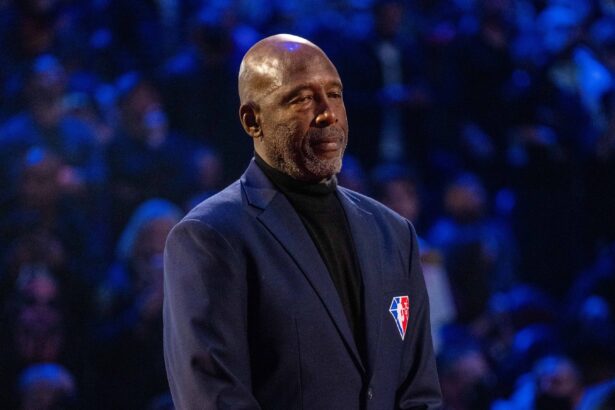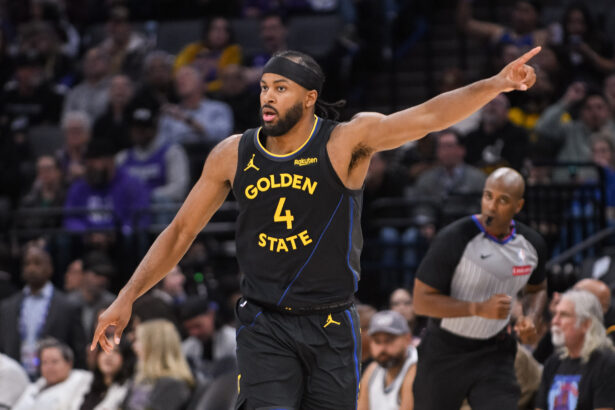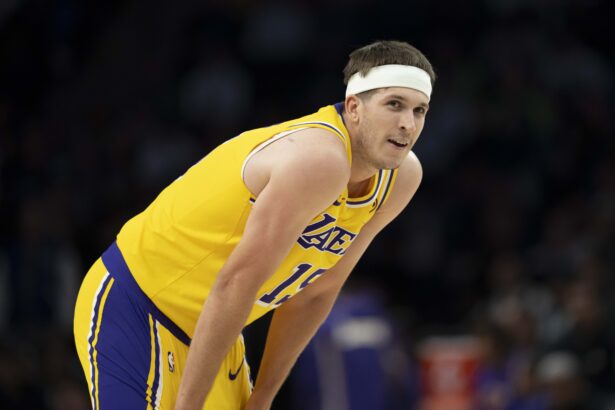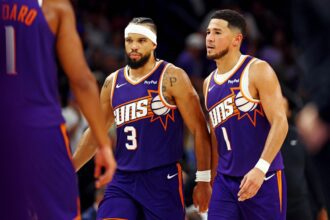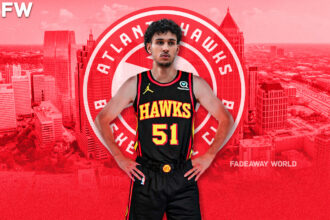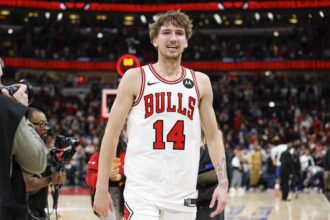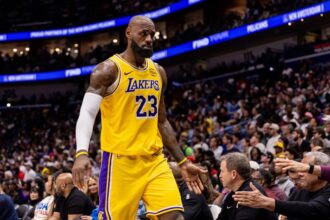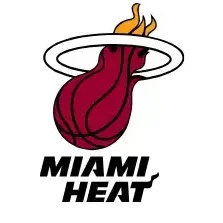In the NBA, the last 25 years have been filled with star power across every franchise. As we approach the 2025-26 campaign, we have to look over and name the best starting lineup each team puts out. But who makes the cut as the best starting five for each team since 2000?
- Atlanta Hawks
- Boston Celtics
- Brooklyn Nets
- Charlotte Hornets
- Chicago Bulls
- Cleveland Cavaliers
- Dallas Mavericks
- Denver Nuggets
- Detroit Pistons
- Golden State Warriors
- Houston Rockets
- Indiana Pacers
- Los Angeles Clippers
- Los Angeles Lakers
- Memphis Grizzlies
- Miami Heat
- Milwaukee Bucks
- Minnesota Timberwolves
- New Orleans Pelicans
- New York Knicks
- Oklahoma City Thunder
- Orlando Magic
- Philadelphia 76ers
- Phoenix Suns
- Portland Trail Blazers
- Sacramento Kings
- San Antonio Spurs
- Toronto Raptors
- Utah Jazz
- Washington Wizards
In this breakdown, we’ll build the ultimate starting lineup for all 30 NBA teams since 2000, position by position, highlighting the players who had the biggest impact on their franchise’s success in the modern era. This list celebrates the very best each team has had to offer in the 21st century, so let’s dive in.
Atlanta Hawks
Starting Lineup: Mike Bibby, Jamal Crawford, Joe Johnson, Josh Smith, Al Horford
The Hawks of the late 2000s built a reputation as one of the Eastern Conference’s most balanced squads, with Mike Bibby orchestrating the offense and Jamal Crawford providing instant scoring off the wing. Joe Johnson was the unquestioned star, capable of hitting big shots and carrying the offense during crunch time. Josh Smith’s athleticism on both ends and Al Horford’s versatility in the paint rounded out a starting five that defined Atlanta basketball during its most consistent playoff run in decades.
This lineup anchored the Hawks to three straight 50-win seasons and multiple trips to the Eastern Conference Semifinals, revitalizing a franchise that had been largely irrelevant through the 1990s. While they never broke through to the Conference Finals, the Bibby-Johnson-Smith-Horford core gave Atlanta credibility as a perennial playoff threat.
Boston Celtics
Starting Lineup: Rajon Rondo, Ray Allen, Paul Pierce, Kevin Garnett, Kendrick Perkins
When the Celtics assembled Rajon Rondo, Ray Allen, Paul Pierce, Kevin Garnett, and Kendrick Perkins, the NBA entered a new era of “superteams”. The Big Three of Pierce, Garnett, and Allen were All-NBA stalwarts, but it was Rondo who emerged as the engine, distributing and setting the pace, while Perkins anchored the paint with toughness.
Their impact was immediate: the Celtics won the 2008 NBA Championship, posting the best regular season record (66-16) in the league and defeating Kobe Bryant’s Lakers in six games. They reached two Finals in three years, with Garnett’s arrival in particular transforming Boston’s defensive identity. The “Big Three” era not only returned championship glory to Boston but also (arguably) kick-started the superteam era.
Brooklyn Nets
Starting Lineup: Jason Kidd, Kerry Kittles, Richard Jefferson, Kenyon Martin, John Collins
The early 2000s New Jersey Nets, led by Jason Kidd, were a defense-oriented team that thrived on the fast-break. Kidd’s court vision unlocked Kerry Kittles and Richard Jefferson on the wings, while Kenyon Martin brought energy and physicality at power forward. John Collins’ inclusion gives this lineup a modern touch, providing frontcourt scoring and rebounding to complement the classic Kidd-era core.
This unit reflects the best blend of Nets basketball, combining Kidd’s Finals runs with the athleticism of Jefferson and Martin. The Kidd-led Nets reached back-to-back NBA Finals in 2002 and 2003, falling short of a championship but establishing themselves as the dominant team in the Eastern Conference at the time. Although overshadowed by Western Conference dynasties, this group represents Brooklyn’s (then New Jersey’s) best days.
Charlotte Hornets
Starting Lineup: Baron Davis, David Wesley, Jamal Mashburn, Elden Campbell, P.J. Brown
Before the franchise endured years of mediocrity, the early-2000s Charlotte Hornets were a gritty playoff regular. Baron Davis was their electrifying young point guard, combining strength and explosiveness with the ability to take over games. Alongside him, David Wesley and Jamal Mashburn provided steady scoring on the perimeter, while veterans Elden Campbell and P.J. Brown patrolled the interior with size and defense.
This Hornets group reached the second round of the playoffs in 2001 and 2002, consistently giving higher seeds trouble with their toughness. Mashburn, in particular, shone as an underrated All-Star, while Davis’ emergence hinted at the future star he would become. Though this lineup never broke through to title contention, it showcased a balanced roster that perfectly captured the Hornets’ last truly competitive era before relocation and years of rebuilding.
Chicago Bulls
Starting Lineup: Derrick Rose, Corey Brewer, Luol Deng, Carlos Boozer, Joakim Noah
The Derrick Rose era was a great time for the Chicago Bulls. Rose, the youngest MVP in NBA history, led Chicago with explosive scoring and unmatched athleticism at the point guard position. Corey Brewer added perimeter defense and transition ability, while Luol Deng brought two-way consistency at small forward. Carlos Boozer gave the team a reliable inside scorer, and Joakim Noah anchored the defense as an emotional leader and rim protector.
This lineup helped Chicago post the league’s best record in 2010-11 and reach the Eastern Conference Finals before falling to LeBron James and the Miami Heat. Injuries derailed what could have been a dynasty, but at their peak, the Rose-Deng-Noah core was one of the toughest units in the NBA. If only they could have stayed healthy long enough to reach their potential to challenge LeBron’s teams in the Eastern Conference a little longer.
Cleveland Cavaliers
Starting Lineup: Kyrie Irving, J.R. Smith, LeBron James, Kevin Love, Tristan Thompson
The Cavaliers’ best lineup since 2000 is a no-brainer: Kyrie Irving, J.R. Smith, LeBron James, Kevin Love, and Tristan Thompson. This unit carried Cleveland to the franchise’s first-ever NBA championship in 2016. LeBron was the centerpiece, orchestrating the offense and dominating on both ends, while Irving was the perfect closer, drilling one of the most famous shots in Finals history over Stephen Curry. Love stretched the floor, Thompson controlled the glass, and Smith provided perimeter shooting and streak scoring.
This group’s defining moment came in the 2016 NBA Finals, when they overcame a 3-1 deficit against the record-setting 73-win Golden State Warriors. LeBron’s legendary block, Kyrie’s clutch three, and Love’s crucial defense on Curry cemented this lineup’s place in basketball history. It wasn’t just the best Cavs lineup since 2000—it’s one of the most iconic starting fives the league has ever seen.
Dallas Mavericks
Starting Lineup: Jason Kidd, Jason Terry, Shawn Marion, Dirk Nowitzki, Tyson Chandler
The Mavericks’ ultimate starting five was the championship-winning one from 2011. Kidd brought championship poise and leadership, Terry added instant offense, and Marion delivered elite defense and versatility. Of course, Dirk Nowitzki was the focal point, one of the greatest power forwards of all time, while Chandler provided rim protection and toughness that gave Dallas the interior presence they previously lacked.
This lineup delivered Dallas its lone NBA title in 2011, shocking the heavily favored Miami Heat “Big Three” in six games. Dirk’s Finals performance was an all-time great, with Kidd and Terry stepping up in clutch moments and Chandler anchoring the defense against superior athletes. This group could remain untouched in Mavs lore because we don’t see how the current team can usurp them.
Denver Nuggets
Starting Lineup: Jamal Murray, Kentavious Caldwell-Pope, Michael Porter Jr., Aaron Gordon, Nikola Jokic
The Nuggets’ modern dominance is captured perfectly by Jamal Murray, Kentavious Caldwell-Pope, Michael Porter Jr., Aaron Gordon, and Nikola Jokic. Jokic, the three-time MVP and Finals MVP, revolutionized the center position with his passing, scoring, and leadership. Murray has emerged as one of the league’s premier playoff performers, while Porter Jr. stretches defenses with his shooting. Gordon is the ultimate glue guy, defending multiple positions, and Caldwell-Pope brings championship experience and perimeter stability.
This lineup powered Denver to the 2023 NBA Championship, the franchise’s first in history. Jokic and Murray’s two-man game became unguardable, and Gordon’s defense against elite wings proved crucial during their Finals run. They have moved on from two starters (Caldwell-Pope and Porter Jr) since then, but their teamwork was certainly one to behold.
Detroit Pistons
Starting Lineup: Chauncey Billups, Richard Hamilton, Tayshaun Prince, Rasheed Wallace, Ben Wallace
The Pistons’ defensive powerhouse of Chauncey Billups, Richard Hamilton, Tayshaun Prince, Rasheed Wallace, and Ben Wallace was one of the most balanced lineups of the modern era. Billups, “Mr. Big Shot,” provided steady leadership, Hamilton excelled in mid-range scoring off screens, and Prince locked down wings with his length. Rasheed added versatile scoring, while Ben Wallace, a four-time Defensive Player of the Year, dominated the paint without needing touches on offense.
This five embodied Detroit’s blue-collar identity and stunned the NBA by winning the 2004 championship against the heavily favored Los Angeles Lakers. They reached six straight Eastern Conference Finals, proving their consistency and toughness. Few lineups in NBA history have had such a perfect blend of defense, unselfishness, and clutch play.
Golden State Warriors
Starting Lineup: Stephen Curry, Klay Thompson, Kevin Durant, Andre Iguodala, Draymond Green
Stephen Curry, Klay Thompson, Kevin Durant, Andre Iguodala, and Draymond Green make up perhaps the most unstoppable lineup of the modern era. Curry and Thompson’s shooting stretched defenses beyond recognition, Durant was the ultimate matchup nightmare, Iguodala provided defense and playmaking, and Green tied it all together with his versatility. This group, nicknamed the “Death Lineup,” forced opponents into impossible decisions every possession.
From 2017-2019, this lineup was the backbone of a near-unbeatable Warriors dynasty, winning two championships and making three straight Finals appearances. Durant’s arrival elevated Golden State from great to untouchable, with the team often breaking games open in just a few minutes of dominant play.
Houston Rockets
Starting Lineup: Chris Paul, James Harden, Trevor Ariza, P.J. Tucker, Clint Capela
The Rockets’ best post-2000 lineup features Chris Paul, James Harden, Trevor Ariza, P.J. Tucker, and Clint Capela. This lineup represented Houston’s all-in embrace of small-ball and analytics-driven basketball around a superstar at his highest level. The Beard was simply an offensive machine on his own, winning three scoring titles and even leading the league in assists.
In 2018, this group came within a whisker of knocking off the Golden State Warriors dynasty, pushing them to seven games in the Western Conference Finals. Injuries to Chris Paul derailed their ultimate chance at a Finals berth, but the Harden-Paul Rockets changed the offensive landscape with isolation-heavy sets and three-point volume. Even without a title, this lineup symbolizes Houston’s most competitive window of the century, even ahead of the Tracy McGrady and Yao Ming team in the 2000s.
Indiana Pacers
Starting Lineup: Tyrese Haliburton, Andrew Nembhard, Aaron Nesmith, Pascal Siakam, Myles Turner
The Pacers’ modern identity was reshaped by Tyrese Haliburton, Andrew Nembhard, Aaron Nesmith, Pascal Siakam, and Myles Turner. Haliburton is already one of the league’s premier playmakers, leading the NBA in assists while keeping Indiana’s tempo lightning quick. Nembhard and Nesmith add defensive grit and outside shooting, while Siakam provides a championship pedigree and all-around scoring. Turner, meanwhile, is one of the NBA’s best shot blockers and floor spacers at the center spot.
This unit represents Indiana’s best shot at contention since the Reggie Miller era. Haliburton’s rise to All-NBA status has energized the franchise, and the midseason trade for Siakam in 2024 signaled a push toward winning now. The Pacers made the Eastern Conference Finals in 2024 and the Finals in 2025, incredible achievements. The Reggie Miller squad in the early 2000s was certainly talented, but we think the 2025 Pacers had a better all-around lineup instead of just focusing on what Reggie brought.
Los Angeles Clippers
Starting Lineup: Chris Paul, JJ Redick, Matt Barnes, Blake Griffin, DeAndre Jordan
Chris Paul, JJ Redick, Matt Barnes, Blake Griffin, and DeAndre Jordan formed the heart of the “Lob City” Clippers, one of the most entertaining lineups in recent memory. Yes, the Kawhi Leonard and Paul George lineup was strong, but their injuries and inconsistencies mean they never got going as they should. The Lob City Clippers brought more consistency and probably the best results in franchise history.
From 2012-2017, the Clippers became perennial playoff contenders and one of the league’s most marketable teams. Though they never broke through to the Western Conference Finals, their regular-season dominance and showtime style put the Clippers on the map in a way the franchise had never experienced before. “Lob City” may not have produced titles, but it redefined Clippers basketball and it was fun to watch as well.
Los Angeles Lakers
Starting Lineup: Derek Fisher, Kobe Bryant, Rick Fox, Horace Grant, Shaquille O’Neal
This Lakers team was the best since 2000, and who could argue? At the center of it all was Shaquille O’Neal, the most dominant physical presence of his era, drawing double and triple-teams while still averaging historic numbers in the postseason. Of course, Kobe Bryant was next to him, and this duo was by far the most dominant in the league. The two best players on one team were simply too much to handle.
This unit helped the Lakers capture back-to-back titles in 2001 and 2002, cementing their place as one of the greatest teams in NBA history. In 2001, they tore through the playoffs with a legendary 15–1 record, still regarded as one of the most dominant runs ever. The balance of Shaq’s inside dominance, Kobe’s perimeter brilliance, and the supporting cast’s composure under pressure gave the Lakers a near-unstoppable mix of talent and experience.
Memphis Grizzlies
Starting Lineup: Mike Conley Jr., Tony Allen, Rudy Gay, Zach Randolph, Marc Gasol
Mike Conley Jr., Tony Allen, Rudy Gay, Zach Randolph, and Marc Gasol defined the “Grit and Grind” era in Memphis. This group wasn’t flashy, but they made every game a slugfest, turning physicality and toughness into their calling card. This lineup carried the Grizzlies to a Western Conference Finals in 2013 and established the franchise’s identity during its most successful run.
They regularly knocked off higher-seeded teams and earned league-wide respect as the squad no one wanted to face in the playoffs. While they never captured a championship, the Conley-Randolph-Gasol core transformed the Grizzlies from an afterthought into one of the league’s toughest outs.
Miami Heat
Starting Lineup: Mario Chalmers, Dwyane Wade, LeBron James, Chris Bosh, Joel Anthony
The Heat’s best lineup since 2000 is an easy pick: Mario Chalmers, Dwyane Wade, LeBron James, Chris Bosh, and Joel Anthony. Wade, LeBron, and Bosh formed the “Heatles,” one of the NBA’s greatest superstar trios. Chalmers thrived as a floor spacer alongside them, while Anthony provided rim protection and rebounding without needing the ball.
Together, they reached four straight NBA Finals from 2011-2014, winning back-to-back titles in 2012 and 2013. LeBron claimed two MVPs (and two Finals MVPs) during that span, Wade adjusted his game to complement his superstar teammates, and Bosh’s versatility gave Miami unmatched flexibility. This lineup not only delivered championships but also redefined the concept of a “superteam,” taking what the Celtics did to another level.
Milwaukee Bucks
Starting Lineup: Jrue Holiday, Khris Middleton, Giannis Antetokounmpo, Brook Lopez
Jrue Holiday, Khris Middleton, Giannis Antetokounmpo, and Brook Lopez formed the backbone of the Bucks’ championship unit. Holiday brought elite perimeter defense and clutch shot-making. Middleton became the closer with his steady scoring, Lopez stretched the floor while protecting the rim, and Giannis rose to superstardom as a two-time MVP and Finals MVP. This lineup blended defense, shooting, and versatility in a way few teams could match.
Their crowning moment came in 2021, when they captured Milwaukee’s first NBA title in 50 years. Giannis’ legendary 50-point performance in the closeout game against Phoenix sealed the championship, while Middleton and Holiday made critical plays throughout the run. We never thought the Bucks would win again after Kareem Abdul-Jabbar, but Giannis proved otherwise.
Minnesota Timberwolves
Starting Lineup: Sam Cassell, Trenton Hassell, Latrell Sprewell, Kevin Garnett, Ervin Johnson
The 2004 Minnesota Timberwolves lineup was the best in the 21st century, and there shouldn’t be a debate about that. The Anthony Edwards and Karl-Anthony Towns team two seasons ago put up a fight, but MVP Kevin Garnett was on a different level than what Anthony Edwards is at right now. Edwards might one day become a greater all-time player, but that isn’t the case yet.
Garnett led the ‘Wolves to the Western Conference Finals in 2004 after finishing with the best record in the Western Conference, earning MVP honors and dominating both ends of the court. Cassell and Sprewell were at All-Star levels throughout the season, while Hassell and Johnson brought toughness and energy.
New Orleans Pelicans
Starting Lineup: Chris Paul, Morris Peterson, Peja Stojakovic, David West, Tyson Chandler
The Pelicans’ standout lineup since 2000 is Chris Paul, Morris Peterson, Peja Stojakovic, David West, and Tyson Chandler when the team was known as the New Orleans Hornets. Paul was already showing signs of his all-time great playmaking in New Orleans, controlling the tempo and finding teammates in perfect spots. West was his trusted pick-and-pop partner, Stojakovic added elite perimeter shooting, Chandler brought rebounding and defense, and Peterson filled his role as a reliable wing scorer.
This lineup carried New Orleans to the 2008 Western Conference Semifinals, pushing the San Antonio Spurs to seven games. Paul finished second in MVP voting that year behind Kobe Bryant, solidifying his status as one of the best young guards in the league. While the team couldn’t sustain long-term success due to injuries and roster turnover, this starting five gave New Orleans its strongest foundation of the post-2000 era and showcased Paul’s early brilliance.
New York Knicks
Starting Lineup: Jalen Brunson, OG Anunoby, Mikal Bridges, Josh Hart, Karl-Anthony Towns
The Knicks’ best starting five since 2000 is the current lineup of Jalen Brunson, OG Anunoby, Mikal Bridges, Josh Hart, and Karl-Anthony Towns. Brunson has quickly become the franchise’s most important guard since Clyde Frazier, and Anunoby, Bridges, and Hart create an unprecedented defensive wing trio. Finally, Towns provides interior scoring and spacing, giving Brunson room to operate.
Brunson’s playoff heroics in 2024 brought the Knicks back into contender status, and he led them to the Eastern Conference Finals last season. No doubt, Towns’ arrival elevated their offensive ceiling, making this group the Knicks’ most balanced, talented, and sustainable unit in decades, which is something the Garden hasn’t seen since the 1990s. And before you ask, yes, this team is far better than the Carmelo Anthony and Amar’e Stoudemire team from the mid-2010s.
Oklahoma City Thunder
Starting Lineup: Shai Gilgeous-Alexander, Luguentz Dort, Jalen Williams, Chet Holmgren, Isaiah Hartenstein
The Thunder’s strongest lineup since 2000 is Shai Gilgeous-Alexander, Luguentz Dort, Jalen Williams, Chet Holmgren, and Isaiah Hartenstein. Shai has blossomed into an MVP, an efficient three-level scorer who thrives in big moments. Dort is the defensive stopper, Jalen Williams is a versatile playmaker and scorer, and Holmgren provides rim protection with outside shooting. Hartenstein, meanwhile, adds toughness and rebounding to balance out the starting unit.
This group represents the Thunder’s greatest moment. Last season, they dominated the league by earning the No. 1 seed in the West and eventually winning the NBA championship. Williams and Holmgren’s development alongside Shai’s superstar leap has given Oklahoma City a foundation that mirrors their Kevin Durant-Russell Westbrook days, but with even more balance, versatility, and chemistry.
Orlando Magic
Starting Lineup: Jameer Nelson, Mickael Pietrus, Hedo Turkoglu, Rashard Lewis, Dwight Howard
The Magic’s premier lineup since 2000 features Jameer Nelson, Mickael Pietrus, Hedo Turkoglu, Rashard Lewis, and Dwight Howard. The key to this lineup was in the paint. Howard dominated as a three-time Defensive Player of the Year and one of the most athletic big men of his era.
This group peaked in 2009, when they shocked the Eastern Conference by knocking off LeBron James’ Cavaliers to reach the NBA Finals. Howard’s interior dominance, paired with Orlando’s revolutionary four-out, one-in spacing, was ahead of its time. Though they fell to the Lakers in the Finals, this lineup remains iconic for redefining how a modern roster could be built around a superstar center.
Philadelphia 76ers
Starting Lineup: Ben Simmons, J.J. Redick, Jimmy Butler, Tobias Harris, Joel Embiid
Ben Simmons, J.J. Redick, Jimmy Butler, Tobias Harris, and Joel Embiid formed the most talented 76ers lineup of the past two decades. Simmons brought size and versatility at the point guard spot, Redick offered elite shooting and off-ball movement, Butler was the closer and emotional leader, Harris filled a scoring role, and Embiid was the franchise cornerstone in the paint. On paper, few starting fives could match their blend of star power and balance.
The 2019 playoffs were the defining moment for this group. They pushed the eventual champion Toronto Raptors to seven games in the Eastern Conference Semifinals, only losing to Kawhi Leonard’s iconic buzzer-beater. That series proved this lineup had championship-caliber potential and represents both a golden opportunity and one of the biggest “what-ifs” in franchise history. They eventually lost Jimmy Butler in free agency, and that was the end of that.
Phoenix Suns
Starting Lineup: Chris Paul, Devin Booker, Mikal Bridges, Cam Johnson, Deandre Ayton
Chris Paul, Devin Booker, Mikal Bridges, Cam Johnson, and Deandre Ayton make up the Suns’ modern powerhouse lineup. This lineup peaked in 2021-2022, taking the Suns to the NBA Finals for the first time in decades. Although they fell to the Milwaukee Bucks, the combination of Paul’s leadership and Booker’s scoring prowess established Phoenix as a true contender.
The Kevin Durant and Devin Booker squad might have more star power, and even the Steve Nash-led squads were amazing to watch, but the Paul-Booker team was simply better on both ends of the court. This squad did not have a weakness, making this five the most complete and talented starting unit in franchise history since 2000.
Portland Trail Blazers
Starting Lineup: Damian Lillard, C.J. McCollum, Al-Farouq Aminu, Maurice Harkless, Jusuf Nurkic
Damian Lillard and C.J. McCollum’s squad was the backbone of Portland’s competitive window in the late 2010s. Lillard’s clutch scoring and leadership defined the team, McCollum was a reliable secondary scorer, Aminu and Harkless provided elite perimeter defense, and Nurkic anchored the paint with rebounding and toughness.
This lineup carried the Trail Blazers deep into the playoffs on multiple occasions, including thrilling first-round series wins over the Oklahoma City Thunder and Denver Nuggets. The peak of this team came in the 2019 season when they made the Western Conference Finals, only to lose to the Golden State Warriors. A lineup with two elite scorers and plenty of size and defense would still be very good today.
Sacramento Kings
Starting Lineup: Mike Bibby, Doug Christie, Peja Stojakovic, Chris Webber, Vlade Divac
This lineup represents the Kings’ most talented post-2000 lineup without a doubt. Bibby’s clutch playmaking and Stojakovic’s elite shooting were perfectly complemented by Chris Webber’s versatility and Divac’s passing and interior presence. Doug Christie adds youth scoring and defensive potential, rounding out a unit built on skill, spacing, and basketball IQ.
This lineup peaked in the early 2000s, when Sacramento consistently challenged for Western Conference supremacy. The Webber-Bibby era nearly made the Finals in 2002, losing a controversial series to the Lakers. Their fluid ball movement, outside shooting, and frontcourt passing made them one of the most exciting teams to watch, cementing this group as the franchise’s post-2000 highlight reel.
San Antonio Spurs
Starting Lineup: Tony Parker, Manu Ginobili, Kawhi Leonard, Tim Duncan, Thiago Splitter
We could have used any of the Spurs teams throughout the 2000s, since they won four NBA titles, but we opted for the 2014 Spurs that featured Finals MVP Kawhi Leonard. The stalwarts Tony Parker, Manu Ginobili, and Tim Duncan were still there, but Leonard added that extra bit of star power.
The 2000s Spurs that had Bruce Bowen in the lineup were arguably just as good, but we think Leonard presents a better two-way presence rather than just defensive dominance. The Spurs were so good in 2014, they blew out the Miami “Heatles” by a record margin in the NBA Finals and capped off the Gregg Popovich legacy tremendously well.
Toronto Raptors
Starting Lineup: Kyle Lowry, Danny Green, Kawhi Leonard, Pascal Siakam, Marc Gasol
Kyle Lowry, Danny Green, Kawhi Leonard, Pascal Siakam, and Marc Gasol form the Raptors’ most dominant post-2000 starting five. This group delivered Toronto’s first NBA Championship in 2019, highlighted by Leonard’s legendary two-way play. GM Masai Ujiri’s decision to bring in the superstar Leonard was truly a stroke of genius, and other acquisitions such as Serge Ibaka and the growth of Fred VanVleet made this team even better.
Gasol’s veteran presence and Lowry’s leadership complemented Kawhi’s dominance, while Siakam’s breakout performance in the Finals gave Toronto unprecedented balance. This starting five represents the Raptors’ greatest era (without disrespect to Vince Carter), blending star power, depth, and defensive excellence into a championship-winning formula.
Utah Jazz
Starting Lineup: Deron Williams, Ronnie Brewer, Andrei Kirilenko, Carlos Boozer, Mehmet Okur
We thought about using the Donovan Mitchell and Rudy Gobert lineups, but they grossly underachieved for what they had at the time. Therefore, we went for the mid-2000s squad. Deron Williams provided elite playmaking and floor leadership, Brewer was a defensive stopper and energy spark; Kirilenko contributed versatility on both ends, Boozer supplied scoring and rebounding, and Okur stretched the floor while protecting the rim.
This unit powered the Jazz to four playoff appearances in the mid-2000s, including a deep run to the Western Conference Finals in 2007. Kirilenko’s defensive versatility and Okur’s shooting made them one of the more innovative lineups of the era, blending size, skill, and athleticism. While they never reached the Finals, this starting five was certainly one to watch.
Washington Wizards
Starting Lineup: John Wall, Bradley Beal, Otto Porter Jr., Markieff Morris, Marcin Gortat
John Wall, Bradley Beal, Otto Porter Jr., Markieff Morris, and Marcin Gortat make up the Wizards’ top starting lineup of the modern era. Even if they might be forgotten these days, it was certainly great to see the star power of Wall and Beal get to work on the offensive end. At times, they were almost untouchable when both were feeling it.
This group helped Washington reach the second round of the playoffs in 2017, their deepest run in years. Wall and Beal’s leadership on offense, paired with Porter and Morris’ defensive versatility, gave the Wizards the ability to compete with elite Eastern Conference teams. While injuries and roster changes limited long-term success, this starting five represents the franchise’s most talented and complete team of the past 25 years.

